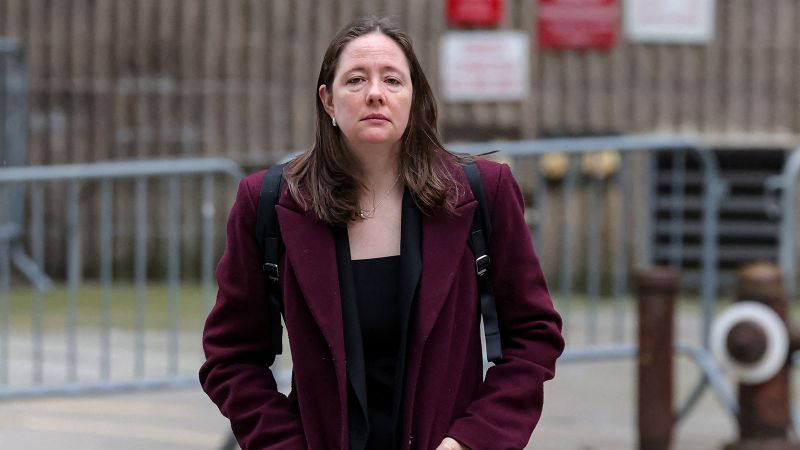Maurene Comey, a prominent federal prosecutor known for her association with several high-profile cases, has recently been terminated from her position in the Southern District of New York. This abrupt decision has raised eyebrows among those familiar with the nuances of political dynamics, particularly given her lineage as the daughter of former FBI Director James Comey. Sources close to the situation indicate that the current administration views her familial ties as a significant issue, particularly in light of her father’s ongoing criticisms of President Donald Trump’s governance.
Maurene Comey’s prosecutorial record includes notable involvement in high-stakes cases, most prominently the prosecution of the accused sex trafficker Jeffrey Epstein. In addition, she was involved in the investigation against Sean “Diddy” Combs, further establishing her reputation in the legal arena. However, the circumstances surrounding her dismissal remain unclear, prompting speculation about the motivations behind this sudden move. Insiders have suggested that her last name carries a stigma in the present political climate, largely due to James Comey’s vocal critiques of the Trump administration and ongoing investigations into his actions, including potential false statements made to Congress.
James Comey himself has become a polarizing figure, especially since his controversial termination as FBI Director in 2017. His testimony and public statements have often put him at odds with the current administration, particularly regarding the investigation into Russian interference in the 2016 presidential election. Complicating matters, the elder Comey made headlines when he posted an ambiguous photo on social media that raised questions about its intended message and his safety, resulting in a query from the Secret Service.
The context of Maurene Comey’s job loss is further compounded by the scrutiny surrounding the Epstein case, which has persisted since the financier’s death in 2019. Epstein, a convicted sex offender, was found dead in his jail cell while awaiting trial, a situation that has attracted significant public interest and rumor. The Justice Department’s recent statements dismissing the existence of an Epstein “client list” seem to underscore the administration’s desire to distance itself from the fallout of the entire scandal. Simultaneously, the Trump administration has signaled its intention to withhold further documents related to Epstein’s investigation, a move that many see as an attempt to manage the narrative surrounding the case.
Epstein’s criminal past and connections to a myriad of influential figures have kept the public’s attention firmly fixed on the implications of his dealings. Maurene Comey, as a lead prosecutor against Epstein and his accomplice Ghislaine Maxwell, was central to a case that continues to resonate. Maxwell’s conviction and subsequent 20-year sentence has drawn mixed reactions, with appeals in progress that keep her saga alive in the legal community.
The situation escalated further when President Trump publicly dismissed the controversies surrounding Epstein. Using social media, he labeled the public’s concern over Epstein’s affairs as “bullsh*t” and characterized supporters focusing on the matter as “weaklings.” This rhetoric aimed to delegitimize the ongoing federal investigation, combining political maneuvering with a deliberate attempt to reshape public perception about the accountability mechanisms in place.
Meanwhile, many of Trump’s supporters are hopeful that additional disclosures regarding Epstein may implicate other influential individuals or even raise questions about the circumstances surrounding Epstein’s death. Public speculation continues, as calls for transparency on such critically sensitive matters remain unanswered. Notably, the Southern District of New York has refrained from commenting on the specifics of Maurene Comey’s firing, leaving many to wonder about the motivations behind these complex interplays of familial legacy and political necessity.
This narrative continues to evolve, capturing the interest of media outlets and observers alike, as legal, personal, and political threads intertwine in a political drama that extends beyond individual actors to touch on broader themes of justice, accountability, and the impact of political lineage.











